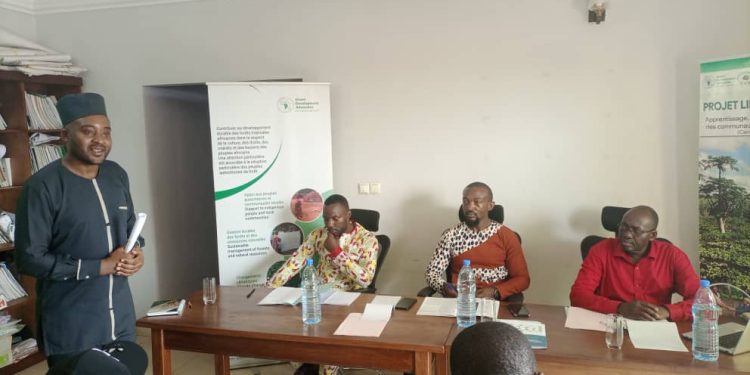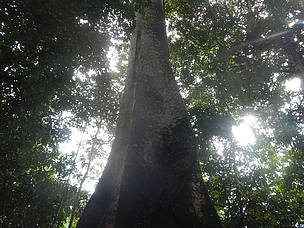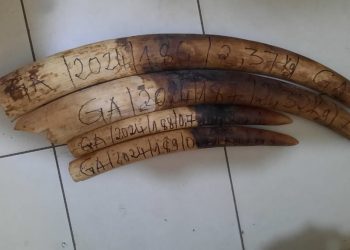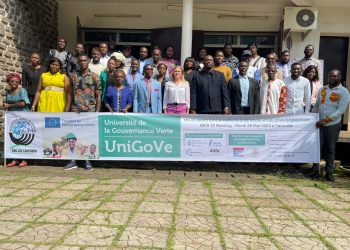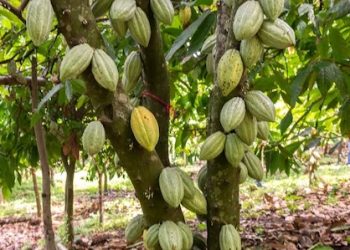Story, Louvier Kindo Tombe
Wildlife plays an important role in the lives of local and indigenous communities. It is essential to their diet, medicinal, traditional, cultural practices, and livelihood. Wildlife management in Cameroon is governed by law No. 94/01 of 20 January 1994, and decree number 95/531 of 23 August 1995, laying down modalities for the management of wildlife.
For a while now, shortcomings have been noticed in the legal framework. In 2008, Cameroon initiated the revision of the forestry, wildlife and fisheries laws because of the lapses found. Consequently, the current conservation model is less inclusive, and accentuates among other things the problems of poaching and illegal trade.
In the draft document circulating relative to the reforms in the forestry, wildlife and fisheries laws, efforts are made in improving forest management but little or no consideration is given to the wildlife components, which has to complete the legal reforms.
The present law exposes the indigenous communities to multiple conflicts between human-wildlife, with government authorities, illegal poachers and safaris.
Some examples could be cited like an increase in wildlife crimes with no protection for indigenous people who denounce such crimes, insufficient legal procedure for reparation and compensation when protected wildlife destroys crops in indigenous communities, among others.
Recently, lives were lost in the South region of Cameroon around the Campo Man National Park, in a human – wildlife conflict. Till date there is no progress in the reparation, compensation process.
The Big Issue
The issue here is wildlife management challenges, which provoke human – wildlife conflicts and prevents indigenous communities access to their ancestral sites thereby killing their culture, tradition and livelihood.
The state through the forest law and decree recognises the right of communities to carry out traditional hunting that does not compromise the conservation strategy, and that 10% of royalties accrued from wildlife exploitation is paid to the communities boarding the hunting area through their councils. Unfortunately, the law prohibits the communities from commercialising and/or transporting the products (local consumption only). Furthermore, Royalties are not paid directly to communities but rather 70% is paid to state treasury and 30% paid to the special fund for the development of protected areas which hardly reaches the communities.
The law stipulates that administrative killing of an animal is followed by an investigation which is regarded as a means of preventing human wildlife conflicts. But the preconditions to be fulfilled and the practical constraints of its application mean it is often applied after the damage has been caused.
Another means of managing human wildlife conflicts provided for by the law is self defence (Article 83 of law 94/01) but proof of self defence can only be provided when the destruction of crops and other property, attack on human have already occurred. The state in some cases kill wildlife (elephant) to distribute the meat as compensation to victims of damage, violating it’s provisions. During court cases provoked by conflict, it is very difficult for communities to constitute self as civil parties.
The law provides that before protected areas are created, the indigenous communities must be informed through official means and notices posted in the communities for the people to lay claims when neccesary, but most often the indigenous communities are under educated and lack means to notice when notices are brought up. Information and communication is thus not properly disseminated.
In the 1995 law, community based management approach is listed promoting community hunting territories but that also has limitations in that the areas provided for must be 5.000 hectares maximum which is insufficient for a genuine community wildlife management there by pushing locals to non permanent forest areas where wildlife is not always very abundant.
The Way Forward
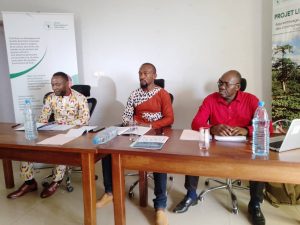
Some civil society organizations in Cameroon (more than 20) have formulated recommendations for a legal framework for wildlife management that better protects the rights and interests of indigenous people and local communities, by strengthening; human – wildlife conflict management; integration of local communities in the fight against poaching and wildlife crime; promote community-led conservation initiatives; promote community involvement in the creation and management of protected areas.
The proposals expected to beef up the current forest, wildlife law under reform in the country were presented to the press in Yaounde on Thursday January 2, 2023 during an event organised by Green Development Advocate (GDA), the lead civil society organization in the coalition.
The event took place at the head office of GDA under the auspices of its coordinator, Aristide Chacgom Fokam,
Senior Project Officer at GDA, Ekane Nkwelle, during the conference elaborated on the various proposals from the CSOs and communities.
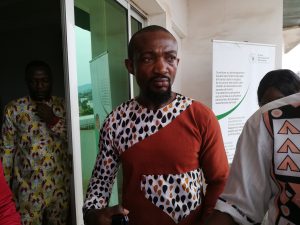
The CSOs want government to incorporate into the reform the following points;
– Redefine community user rights to favour indigenous people from exchanging thier wildlife products with other basic commodities like oils, salt, ….etc, among others,
– Redefine terms to provide access for indigenous communities to their sacred cultural and traditional sites/shrines found in protected areas,
– Decentralise the payment of wildlife royalties,
– Encourage all consultations involving indigenous communities to have a translation into local languages for easy communication,
– Simplify and specify the compensation procedures for victims of human wildlife conflicts… among many others.
The proposals are destined to policy makers in the country. Green Development Advocate (GDA) and partners strongly believe that if these and many more are incorporated into the law under review, it will go a long way to mitigate human – wildlife conflicts.

